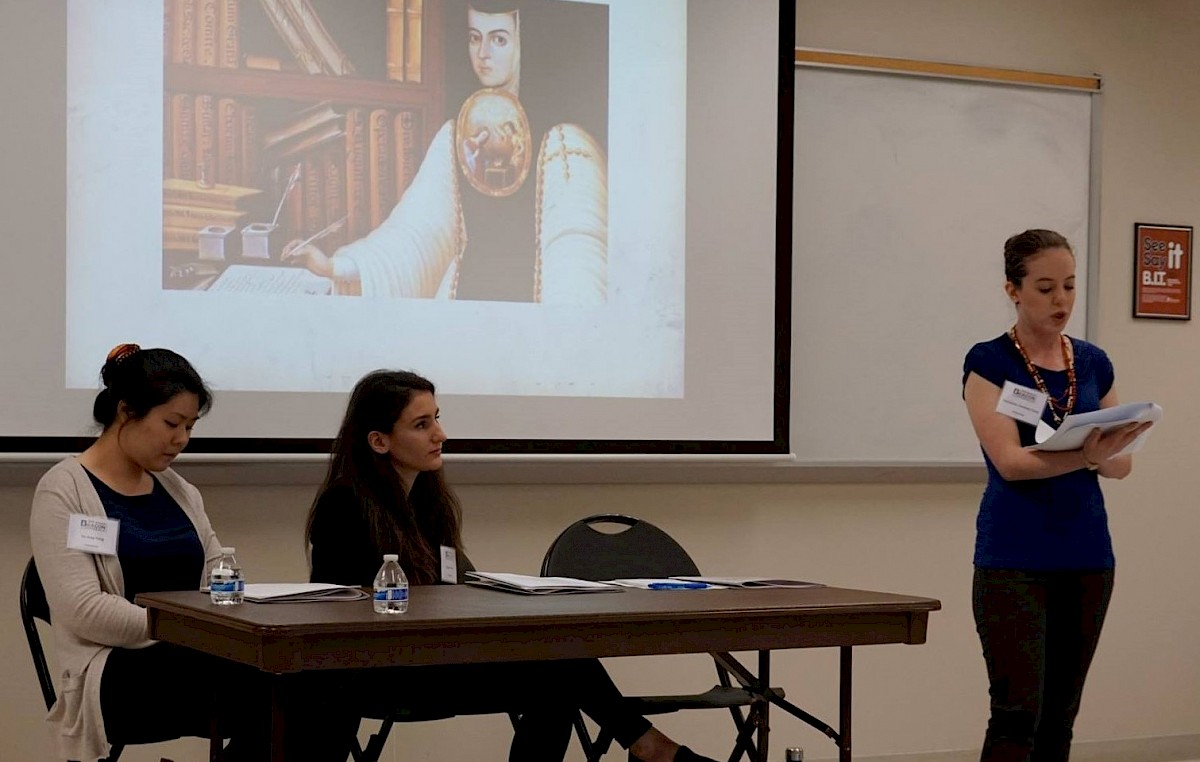
Guidelines for 2024 Panel Presenters
Standard Beacon Conference Guidelines for Panel Presenters
- Prepare a Professional Presentation
Beacon presentations vary tremendously. Some presenters give traditional academic talks, essentially reading their papers to the audience. Most presenters augment their presentations with visual aids: PowerPoint slides, video clips, etc. Regardless of the presentation method used, the best presentations have the following characteristics:- They respect the conference's time limits.
- If a PowerPoint presentation is used, the slides augment the talk instead of driving it. In other words, the talk advances the slides instead of the slides advancing the talk.
- They make clear whatever is original in the paper or project.
- They are well organized so that an attentive audience can follow them.
- They are given in a professional manner.
- They are formed and rehearsed in consultation with a Faculty Mentor.
- Anticipate Likely Questions
While it is impossible to predict exactly what questions panel judges and attendees will ask, it is possible to anticipate the general kinds of questions your paper and presentation are likely to raise. Your Faculty Mentor can help you anticipate likely questions and prepare to answer them.
Panel Judges often ask questions about research methodology, how to refine one's approach to an issue or problem, how to take the next step or apply to a future research endeavor what was learned or discovered in this project, or how the ideas presented in the paper or presentation relate to current events or recent scholarship. Sometimes, presenters are asked to respond to opposing arguments or evidence, real or hypothetical, that would appear to counter your conclusions.
It is helpful to remember that, generally speaking, your audience is supportive and interested in your success.
- Pay Attention to Fellow Panel Presenters
While your fellow panel presenters are your competition, they are also your peers and you are part of their audience when they are speaking. Panel Judges and audience members will assume that you have paid attention to the panelists who present before and/or after you. As your fellow panel presenters give their presentations, be sure to follow their arguments, to think about how your project and talk relate to theirs, and to jot down a few notes. Doing so can help you prepare to respond should the panel Judge or an audience member ask you to discuss connections between your talk and your peers' talks.
- Take Time to Think
Most people giving a talk in a competitive setting are at least a little nervous, especially when being asked questions about their work. That nervousness sometimes leads panel presenters to rush to respond to questions during the Q&A portion of the panel. It is appropriate to take a moment to think about at least part of your response before you begin responding to the question.